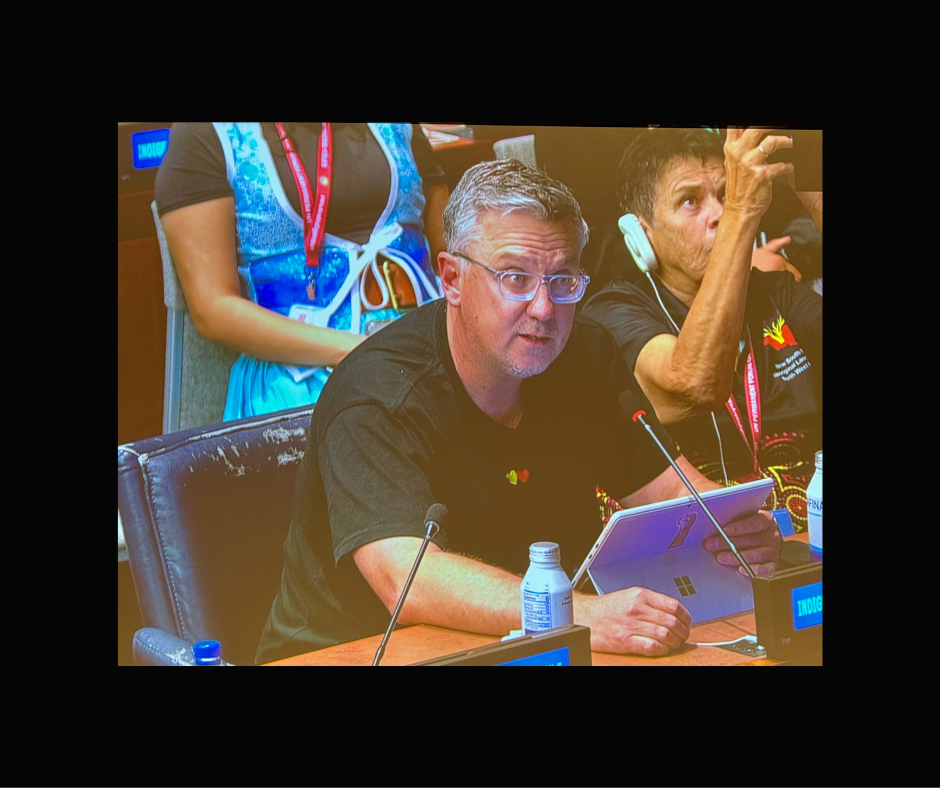Lowitja Institute raises global health intervention at the United Nations Permanent Forum on Indigenous Issues 2025

On behalf of the Taungurung Land & Waters Council and Lowitja Institute, on 22 April 2025, our CEO Paul Stewart raised the following intervention during the twenty-fourth session of the UN Permanent Forum on Indigenous Issues, at UN Headquarters, New York.
Lowitja Institute Intervention
Advancing Indigenous Data Sovereignty Globally
Presented by Mr Paul Stewart
As the CEO of Lowitja Institute and a Taungurung citizen, we urgently call for action to increase Indigenous control and ownership of Indigenous health and population data globally, as outlined in the United Nations Declaration on the Rights of Indigenous Peoples (UNDRIP).
UNDRIP establishes a broad framework of minimum standards for the survival, dignity, and wellbeing of Indigenous peoples across the world, and has created a space and impetus to ask how Indigenous peoples can be supported to drive our own agenda.
Article 31 reaffirms the rights of Indigenous Peoples to access and control data about our peoples, territories, lifeways, and resources.
We call on member states and UN agencies to meet their obligations to fully implement Article 31 of UNDRIP and convene a meeting to discuss decolonised approaches and actions to:
- identifying sources and quality of country level Indigenous administrative health and population data, and to identify gaps in the availability and accessibility of this data
- implement models of Indigenous control and ownership of Indigenous health and population data which ensures control over the data ecosystem
- as well as to provide stewardship and management of data collection.
We urge the UN member-states and agencies to:
- produce an overview of models to support the Indigenous governance of data systems, including the investment in global infrastructure to support Indigenous data sovereignty and long-term health equity
- commit to understanding the requirements for ongoing monitoring of Indigenous peoples’ health and social outcomes, including global governance and infrastructure.
Globally, Indigenous administrative data is the key to the monitoring of Indigenous rights to health.
Data is a valuable resource and a strategic and economic asset for Indigenous peoples.
There is an international movement of Indigenous peoples working to advance self-determination and decolonisation in matters of data, with an agenda to increase Indigenous control and ownership of Indigenous health and population data.
We want true decision-making power over our data to ensure our rights and interests are reflected in data policies and practices.
Finally, we call for the Forum to:
- specially focus of the Indigenous Determinants of health at next years Permanent forum, and
- make a recommendation to UN Agencies to utilise the Indigenous Determinants of Health Measurement instrument that was presented at this forum this morning to conduct a self-evaluation on their conceptual and operational structures based on the Indigenous Determinants of Health and on the Rights of Indigenous Peoples.
Thank you, Chairperson

